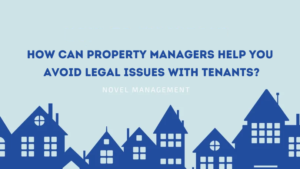Florida’s legal framework governs the rights and duties of both landlords and tenants. From lease agreements to eviction procedures, understanding these laws is crucial for fostering positive landlord-tenant relationships and safeguarding your investments.
This comprehensive guide will explain the legal landscape of the Florida landlord-tenant laws and provide valuable insights into the rights and obligations of both parties involved.
Required Landlord Disclosures in Florida
Florida landlords are obligated to provide their tenants with essential disclosures in their lease or rental agreement before renting out a premises to ensure transparency. Here are the key disclosures that a Florida landlord is required to make:
Authorized Authorities
A Florida residential landlord shall provide the tenant with comprehensive details regarding property ownership. This includes furnishing the names and addresses of all property owners and any certified intermediaries authorized to act on behalf of the property owner. This disclosure ensures that a tenant is aware of the responsible parties involved in the management to the rental unit.
Radon Gas
A landlord is obligated under Florida statutes to equip the tenant with information regarding radon gas, regardless of its presence in or around the rental unit. This disclosure includes language provided by the state, outlining the nature and hazards associated with radon gas.
Security Deposit Holdings
For a landlord leasing five or more rental units, a specific disclosure is mandatory. This disclosure encompasses crucial details such as the location where the security deposit will be held and whether the tenant is entitled to interest on the deposit. This must be included in the existing rental agreement or lease prior to the occupancy of the premises.

Lead-Based Paint
For residences constructed before 1978, federal law mandates a landlord notify their tenant of the potential of lead-based paint hazards and include this reasonable notice in the written lease. This disclosure is crucial for the safety of the tenant, especially those with young children, as exposure to lead-based paint can have severe health implications so a landlord must not forget it.
Florida Tenant Rights and Responsibilities
The following are fundamental rights afforded to a tenant in the state of Florida:
- A landlord in Florida must address necessary repairs within seven days of receiving written notice from the tenant. If repairs are not promptly addressed, the tenant has the option to terminate the rental agreement, withhold rent, or take legal action to compel the landlord to make necessary repairs to the dwelling unit.
- The tenant has the right to reside in safe and habitable premises that abide by housing and health codes.
- The right to quiet and peaceful enjoyment of the dwelling unit
- The right to be treated fairly and equally by the federal and state Fair Housing Laws.
The following outlines the primary responsibilities of tenants under Florida landlord-tenant law:
- A tenant is responsible for keeping their rented unit safe and habitable by housing and health codes, reporting issues promptly to prevent hazards.
- A tenant must keep their part of the rental unit clean and sanitary.
- The tenant is expected to use fixtures such as plumbing and electrical systems responsibly.
- The tenant must contribute to a peaceful living environment for all those in the premises around them
- The tenant is obligated to avoid destroying or damaging any part of the rented premises.
- The tenant must follow the terms of the lease or rental agreement by making timely rental payments, keeping the premises clean, and staying for the home rental period.

Landlord Rights and Duties in Florida
Following are some of the landlord responsibilities listed under the Florida landlord-tenant laws:
- A landlord must provide and maintain hot water facilities and smoke detectors.
- While a landlord is not obligated to provide kitchen appliances, if provided, they must ensure they are in working condition.
- A landlord has a partial responsibility for providing and maintaining garbage containers and removal services.
- A landlord is obligated to address and rectify mold and pest control issues in the rental property.
- Treat every tenant residing in any given dwelling unit fairly
- Return the security deposit at the end of the written rental agreement, or whatever remains of it after allowable deductions.
A landlord also has the following rights under the Florida landlord-tenant laws:
- Evict a tenant for violating the rental agreement upon providing the correct notice
- Collect a security deposit and use it to repair damage caused by the tenant
- Carry out property inspections of the premises so long as they provide the proper notice
- Increase rent payments by state law and the lease’s terms
Overview of Florida Landlord-Tenant Laws
The following is an overview of certain elements that make up Florida landlord-tenant laws:
Tenant Privacy and a Landlord’s Right to Enter the Dwelling
A landlord in Florida has the right to enter rental properties for inspections, maintenance, and showings. Proper notice to the tenant within 24 hours is typically required unless it’s an emergency. Failure to give a tenant written notice or misuse of entry rights under Florida law may provide grounds for early lease termination.

The Condition, Maintenance, and Repairs
A landlord is obligated to make necessary repairs promptly. Repairs must be completed within seven days of receiving written notice from the tenant. If repairs aren’t addressed promptly, a tenant can terminate the lease agreement or take legal action to compel repairs.
Florida Housing Discrimination Laws
The Florida Fair Housing Act protects the tenant from discrimination based on color, race, national origin, religion, familial status, sex, or disability. Additional protections exist for pregnant individuals under Florida law. Actions such as refusing to rent, unfair brokerage practices, threats, and refusal of reasonable accommodations may be deemed discriminatory.
Security Deposits
A landlord may charge whatever they deem appropriate as a security deposit but note that overcharging can lead to tenant turnover and longer vacancies. A landlord must, however, hold deposits in an interest-bearing or non-interest-bearing account or post a surety bond. If landlords are making deductions from the security deposit, they can also do so to cover the following:
- Unpaid rent
- Physical damage (excluding normal wear and tear)
- Damage due to lease agreement breach
- Cleaning costs from excessive disorder
- Other agreed-upon charges
You must return the security deposit within 15 days if there are no deductions and 30 days if there will be deductions made. The tenant can sue for the full deposit, court costs, and attorneys’ fees if they do not receive their deposits back within these time frames.
Bottom Line
Understanding landlord-tenant laws in your state is vital to maintaining your rental business. For those seeking professional assistance in managing their rental properties, consider partnering with Novel Management. We offer comprehensive solutions to enhance the landlord-tenant relationship.
Disclaimer: Please note that the information provided in this blog is intended for general guidance and should not be considered as a replacement for professional legal advice. It is important to be aware that laws about property management may change, rendering this information outdated by the time you read it.




